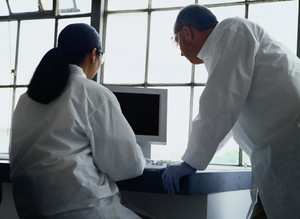On 29 March 2010, Daiichi Sankyo’s Ranbaxy Laboratories in India announced its collaboration with US-based Pfenex on the development of an undisclosed biosimilar therapeutic protein with the Pfenex Expression Technology platform, a Pseudomonas-based recombinant protein expression technology.

The Pfenex Expression Technology is built around specially modified strains of Pseudomonas fluorescens bacteria that increase cellular expression of recombinant proteins and peptides while maintaining critical solubility and activity characteristics. Pfenex can quickly modify expression strains to increase the yield of a customer's biotherapeutic through its unique ability to routinely achieve high cell densities (30 -50 OD) in 0.5 mL 96-well format. Pfenex Expression Technology can help overcome some of the limitations of other bacterial expression systems, like disulfide bond formation, protease degradation of product and product secretion to the cellular periplasmic space, to give the highest possible product yield out of a microbial expression system. It combines an extensive toolbox of expression components with a robotically enabled high-throughput parallel-strain screening technology, delivering unprecedented speed and success in identifying protein-production strains that are expressing high titres of soluble active protein.
As per the terms of the agreement, Pfenex is eligible to receive maintenance fees, milestone payments as well as royalty payments on any product sales derived from the agreement. The scientists of both companies will collaborate on developing the production strains and the process that will be used to produce products in support of clinical development and commercial production of the biosimilar product, Ranbaxy Laboratories informed the Bombay Stock Exchange. According to information available on Pfenex’s website, the company currently has three biosimilar molecules at an advanced stage of process development and the company was looking for partners for commercially developing these molecules.
“Within our overall bio-therapeutic plan, the Pfenex technology will enable Ranbaxy to develop a high-quality, cost-effective product,” CEO and Managing Director Ranbaxy Laboratories Mr Atul Sobti said.
In order to give a boost to its biopharmaceutical business, Ranbaxy Laboratories had acquired a 45% stake in India-based Zenotech Laboratories in 2007. Ranbaxy Laboratories had repeatedly said it is looking at expanding its biosimilar portfolio. In December 2009, California-based protein-producing company, Pfenex Inc was formally spun-out of the Dow Chemical Company as an independent venture-backed entity.
On 20 January 2010, Ranbaxy Laboratories acquired product rights and a manufacturing facility from the India-based vaccine and biotherapeutics firm, Biovel Lifesciences, which some years ago licensed the Pfenex technology from Dow Chemicals for the indigenous production of human growth hormone (hGH). Dr. Reddy's Laboratories, also has a non-exclusive licence to Dow's Pfenex Expression Technology for biocatalysis development as part of a deal signed in 2008.
Furthermore, on 14 December 2009, Pfenex announced that it had granted Merck & Co through an affiliate, an exclusive worldwide license to Pfenex Expression Technology for the production of specific proteins to be used in the development of an undisclosed vaccine candidate.
References:
Ranbaxy signs pact with US firm for developing biosimilars. The Hindu. 2010 March 29.
Anju Ghangurde. Ranbaxy and Pfenex tie up for biosimilar protein. Scrip News. 2010 March 29
Biologics make their mark as therapeutic agents. sp2 Magazine. March 2006.
Source: The Hindu; Scrip News; sp2 Magazine








 0
0











Post your comment